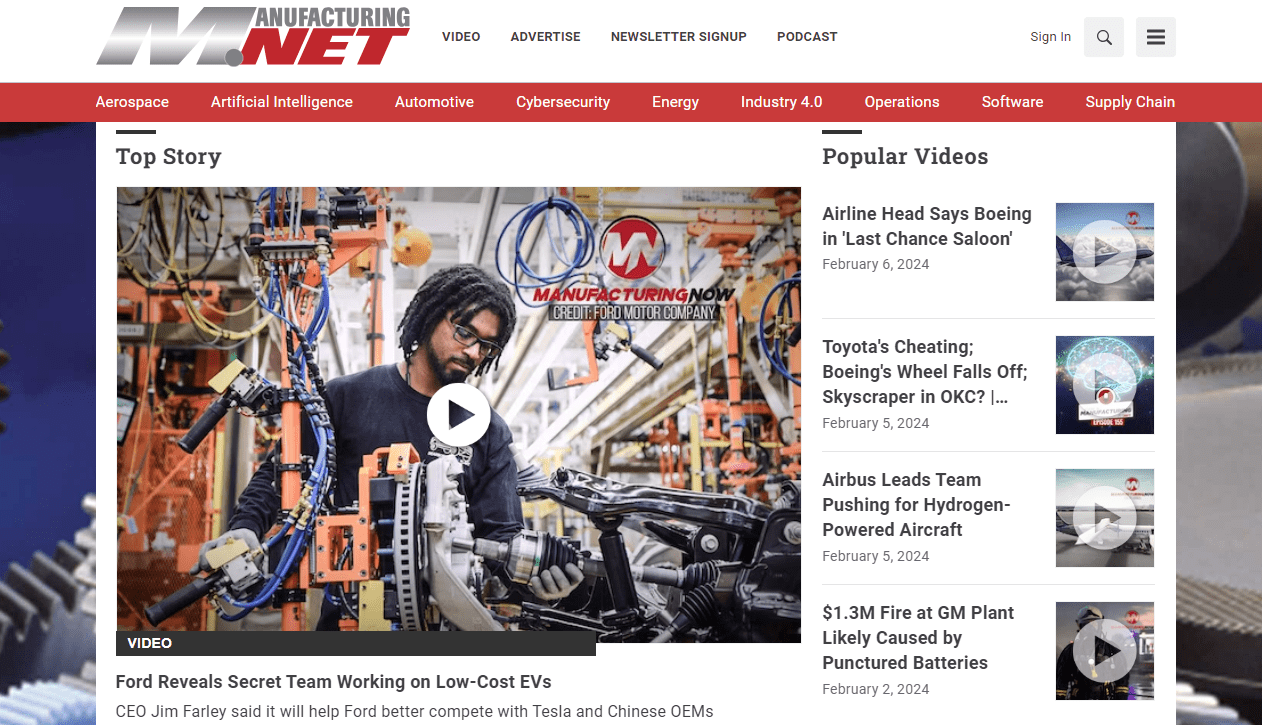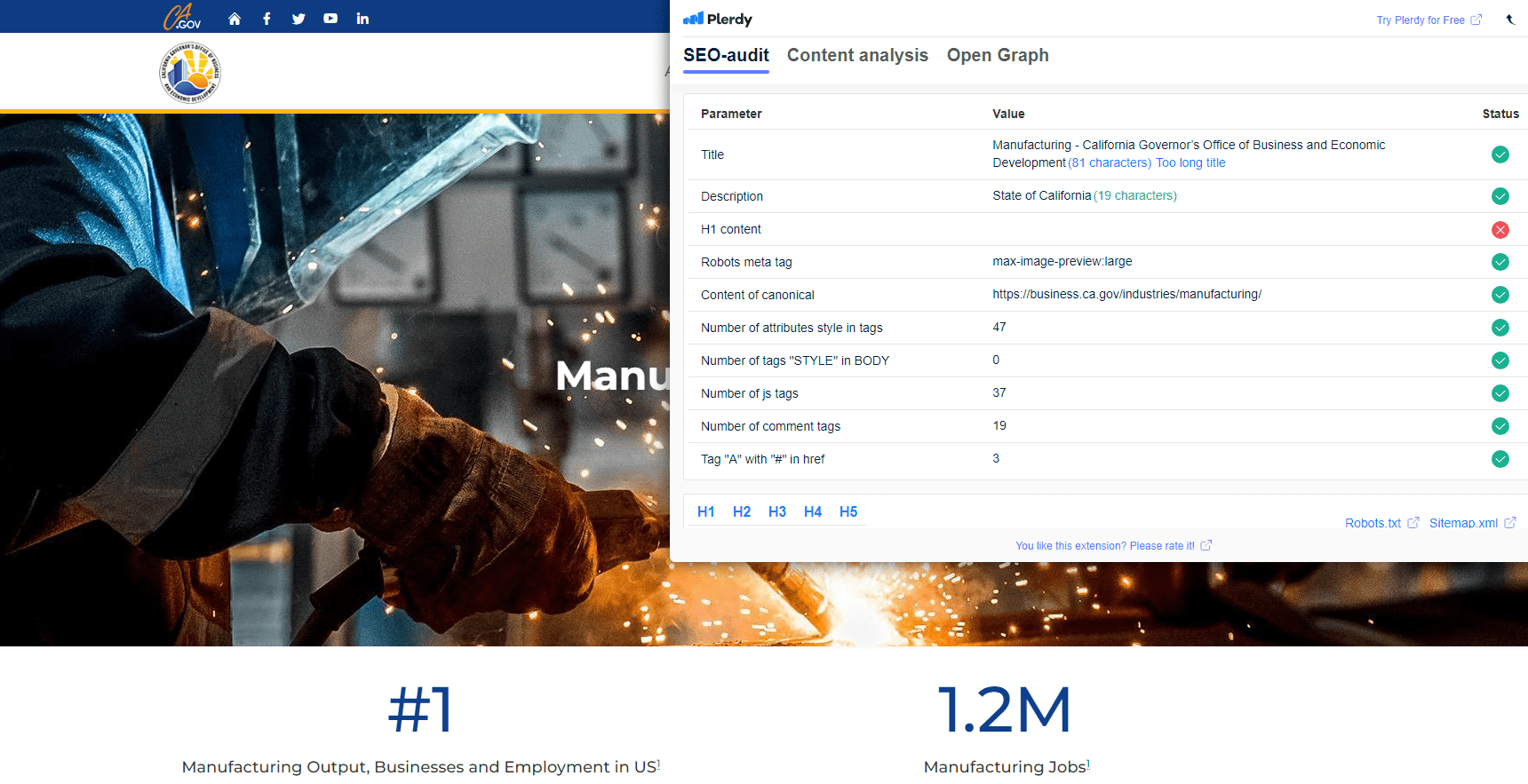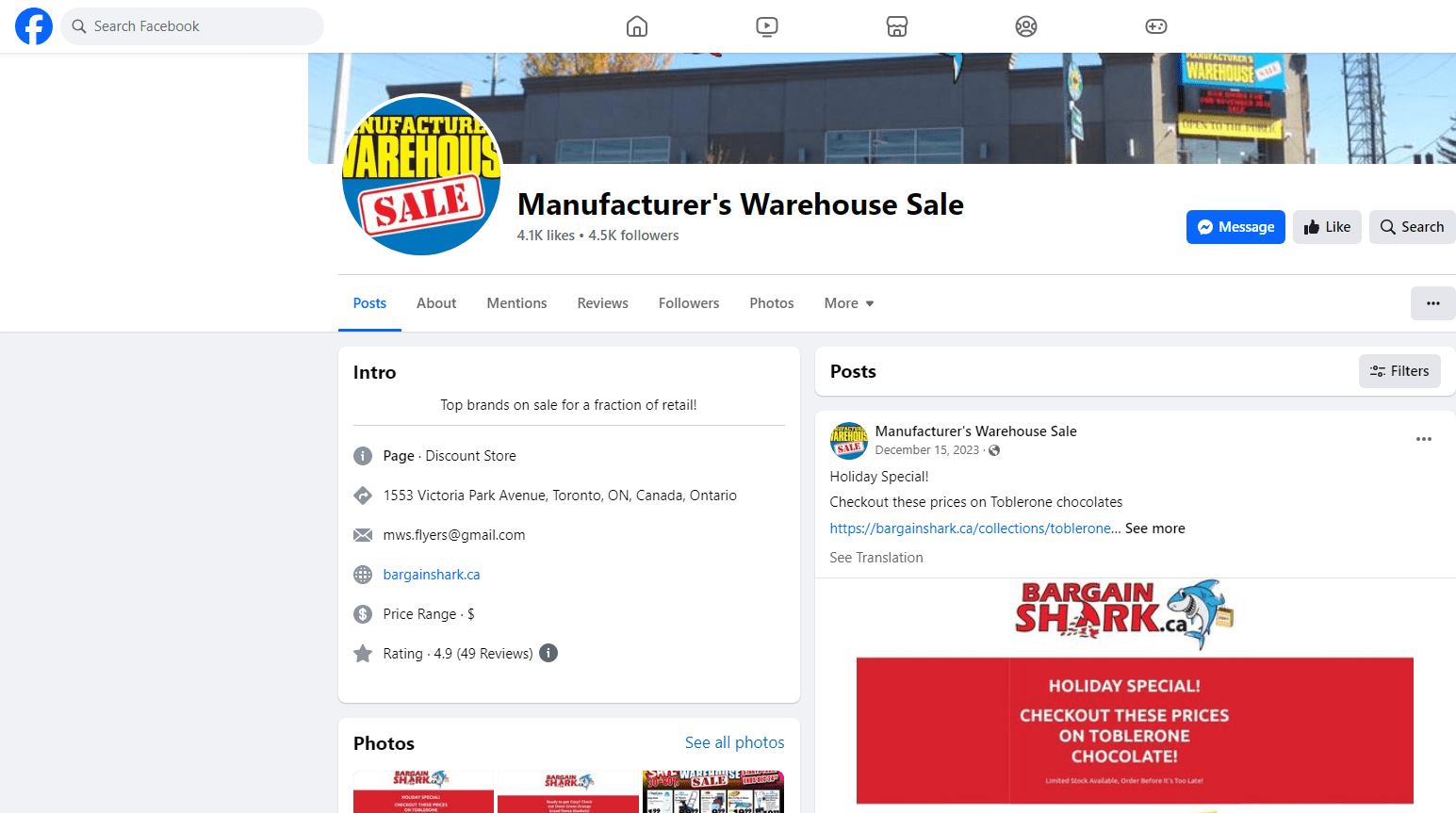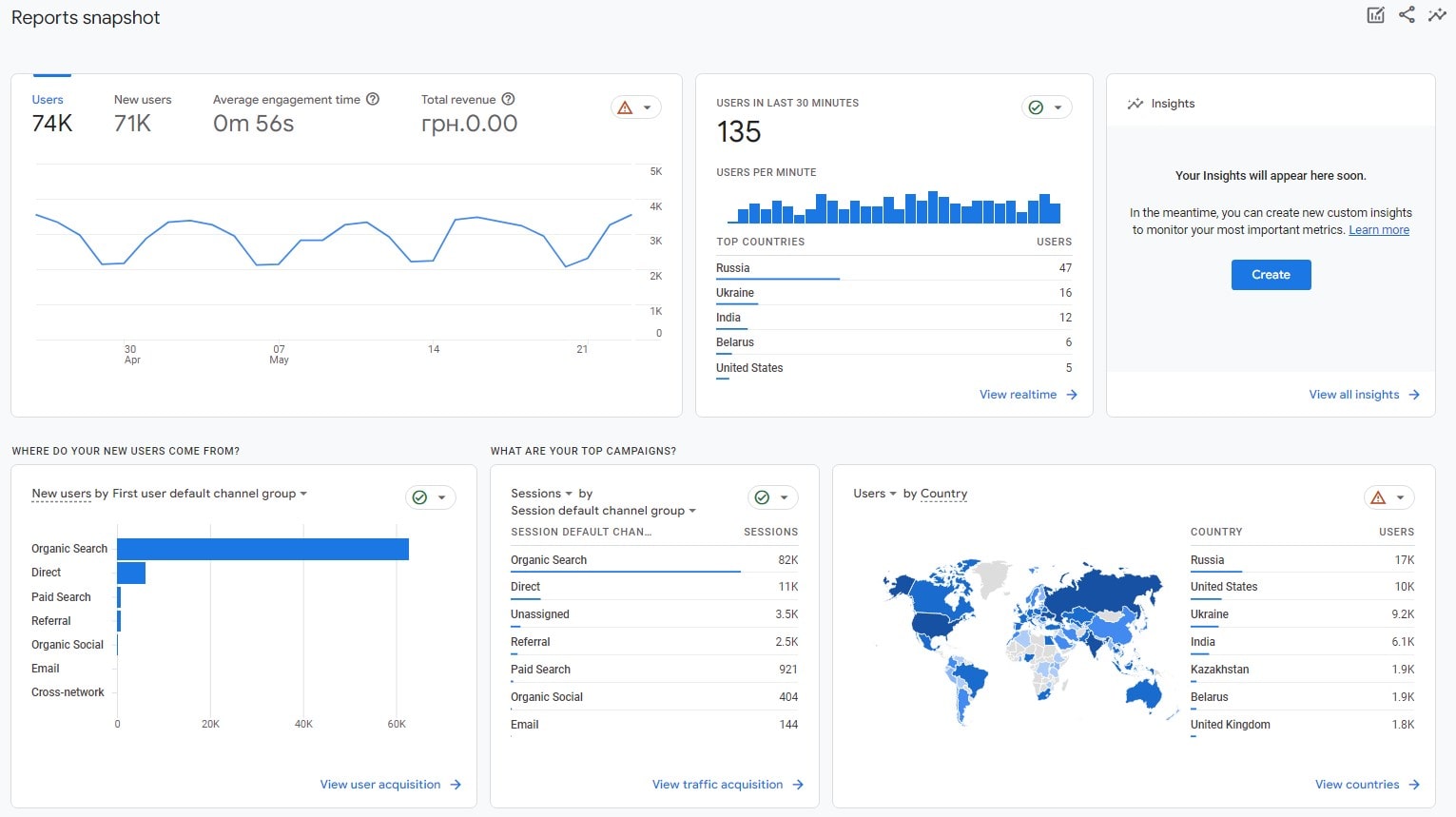Imagine a world where manufacturers still rely on carrier pigeons for marketing – absurd? Just as outdated is ignoring digital marketing in today’s tech-driven market. In manufacturing, transitioning from traditional to digital tactics isn’t just a trend; it’s a crucial pivot to stay relevant and competitive. As digital landscapes evolve rapidly, manufacturers must adapt to survive and thrive. With Plerdy’s insights, navigating this digital transformation becomes less daunting. This guide dives into essential digital marketing strategies tailored for the manufacturing sector, ensuring your digital presence is as robust as your products.

Understanding Your Audience and Market
Ever tried selling a smartphone to someone who’s never heard of the internet? That’s what marketing needs to understand what your audience feels like. In the digital age, especially for manufacturers, knowing your audience and market is like having a roadmap in a maze – it guides every step. Let’s unpack how to ace this for your manufacturing business.
Creating Buyer Personas
Firstly, creating buyer personas isn’t just beneficial; it’s essential. It’s about painting a detailed picture of your ideal customer – think demographics, job roles, pain points, and buying behaviors. For instance, if you’re a manufacturer of automotive parts, your buyer persona might be ‘John, the 40-year-old procurement manager, seeking cost-effective and durable components.’ This level of detail helps tailor your marketing strategies directly to the people most likely to buy from you. According to HubSpot, Personas make tailored websites 2-5 times more effective and easier to use.
Analyzing Market Trends
Next, staying ahead of market trends gives you a competitive edge. In manufacturing, this could mean understanding shifts in supply chain management or the rising demand for sustainable materials. Utilizing resources like the Thomas Industry Update or IBISWorld can provide valuable insights into industry trends. Keeping a finger on the pulse of your market helps anticipate shifts and align your digital marketing strategies accordingly.
Competitor Analysis
Lastly, understanding your competition is just as crucial as knowing your audience. Analyzing what your competitors are doing well or not so well can highlight opportunities for differentiation. For example, if competitors are lagging in adopting eco-friendly practices, and there’s a growing market demand for this, it’s an opportunity for your brand to stand out. Tools like SEMrush offer competitor analysis features that can provide insights into their SEO strategies, advertising, content, and more.
By creating detailed buyer personas, staying current on market trends, and monitoring your competition, you position your manufacturing business to lead the market where it is going.
Developing a Content Strategy for Manufacturers

Envision your content as the digital bridge connecting your manufacturing brand with the audience in the marketing world. With this digital bridge, there’s a significant gap, leaving potential customers connected. Building a great digital marketing content strategy for manufacturers is like building a bridge to keep your audience engaged. Let’s delve into formulating a content strategy that resonates with your target audience within the manufacturing digital marketing space.
Types of Content for Digital Marketing in Manufacturing
In the realm of manufacturing digital marketing, your content should mirror the innovation of your products. This calls for expanding beyond traditional blog posts. Integrate case studies showcasing your manufacturing success stories, tutorial videos demonstrating your products in action, and infographics illuminating manufacturing industry trends or specifications. For example, a case study detailing how your machinery revolutionized a client’s production process can be more impactful in digital marketing than a conventional sales pitch. The Content Marketing Institute asserts that diverse content formats significantly enhance audience engagement in manufacturing digital marketing.
Content Planning and Scheduling
Timely content release is crucial in manufacturing digital marketing. Develop a content calendar that aligns with key manufacturing industry events, seasonal peaks, or product launches. This structured approach ensures consistent and pertinent content delivery in your digital marketing plan. Tools like Trello or Asana are invaluable for effectively scheduling and organizing your digital marketing content. Remember, consistency in posting bolsters your manufacturing brand’s reliability and strengthens audience engagement in the digital realm.
Measuring Content Effectiveness
Completing a digital marketing content strategy for manufacturing is only complete with evaluating its effectiveness. Track engagement, conversion, and traffic with Google Analytics. This data will help identify what is successful and what requires refinement in your digital marketing efforts. For instance, if a specific blog post generates significant traffic, consider delving deeper into that topic in future digital marketing content. Forbes emphasizes that data-driven strategies in digital marketing lead to enhanced customer engagement and higher ROI.
A meticulously developed content strategy is essential for manufacturers in the digital marketing era. It’s about creating varied, thoughtfully planned, and measurable content that attracts and retains your digital audience. Begin constructing your manufacturing digital marketing content bridge today and observe as more customers connect with your brand.
SEO and Website Optimization in Digital Marketing

Picture your website as a digital billboard on the bustling highway of the internet. In the world of digital marketing, without proficient SEO and optimization, it’s akin to placing this billboard in a deserted town – invisible and ignored. SEO and optimization are crucial in ensuring your manufacturing website shines in the crowded digital arena. Gear up to elevate your site from mere visibility to notable impact in the digital marketing landscape.
Keyword Research and Optimization for Digital Marketing
The cornerstone of effective digital marketing SEO is meticulous keyword research. It involves pinpointing the terms and phrases your potential customers deploy when searching for your manufacturing products or services online. Utilize digital tools like Google Keyword Planner or SEMrush to uncover relevant, high-traffic keywords tailored to the manufacturing industry. For example, if your specialization is in aerospace parts, your keywords span from ‘precision aerospace components’ to ‘aerospace manufacturing solutions.’ Once pinpointed, strategically embed these keywords in your website’s content, titles, meta descriptions, and URLs. Moz highlights that astute keyword optimization is pivotal in enhancing your ranking in search results, thereby increasing digital traffic to your site.
Enhancing User Experience
In digital marketing, a user-friendly website is key to retaining visitor engagement. This entails a clean layout, swift loading times, and mobile responsiveness. Tools like GTmetrix are instrumental in analyzing your website’s performance. Also, intuitive site navigation is essential; it should be effortless for visitors to find what they need. Adobe reports that a robust user experience is directly linked to higher conversion rates and fostering customer loyalty in digital marketing.
Building Quality Backlinks in Digital Marketing
In digital marketing, backlinks act as endorsements from other websites. Prioritize quality over quantity. Engage in guest blogging on esteemed industry sites, participate in online manufacturing forums, and craft shareable content to acquire backlinks. Notably, backlinks from authoritative sites in the manufacturing industry have more significance. Backlinko states that quality backlinks are a critical ranking factor in Google’s algorithm, especially in digital marketing.
A website optimized with strategic SEO is your passport to prominent visibility in the digital world. Start refining your SEO and website optimization strategies today to turn your digital billboard into a powerful attractor of potential customers in digital marketing.
Leveraging Social Media Platforms

Social media for manufacturers is about something other than posting what you had for lunch. It’s a strategic tool to connect, engage, and grow your business. Think of social media as your digital handshake – a way to introduce and establish your manufacturing brand in the global market. Let’s explore how to effectively leverage these platforms to boost your manufacturing business.
Choosing the Right Platforms
Manufacturers should choose social media sites where their target audience is active. LinkedIn, known for its professional network, is a goldmine for B2B connections. It’s ideal for sharing industry insights and company news and connecting with potential clients. For visual products, Instagram and Pinterest can effectively showcase your manufacturing process or end products. Facebook’s broad demographic reach suits it for brand building and targeted advertising. Hootsuite’s annual report can guide you in understanding platform demographics and trends, ensuring your choice aligns with your business goals.
Crafting Engaging Content
Content on social media should engage, inform, and add value. Share behind-the-scenes glimpses of your manufacturing processes, customer testimonials, and product demonstrations. Engaging content isn’t just promotional; it tells a story. For example, a video showing the journey of a product from design to completion can captivate viewers. Remember, each post should encourage interaction – ask questions, seek feedback, and respond to comments to foster community engagement. According to Sprout Social, interactive content increases brand awareness and customer loyalty.
Social Media Analytics
Social media performance measurement is essential for plan refinement. Track engagement, following growth, and content reach with Facebook Insights or LinkedIn Analytics. These metrics provide valuable insights into what content resonates with your audience and what drives interaction. Adjust your strategy based on this data to boost engagement and ROI. As Forbes notes, data-driven strategies lead to better decision-making and marketing effectiveness.
Leveraging social media in manufacturing isn’t just about having a presence; it’s about making an impact. Choosing the right platforms, creating engaging content, and utilizing analytics can turn your social media channels into powerful tools for brand growth and customer engagement. Start shaping your social media strategy today and see your manufacturing brand flourish digitally.
Email Marketing Strategies for Manufacturing
Email marketing transcends the traditional approach of inundating inboxes with generic content in the manufacturing sector. It’s a strategic element of digital communication, transforming a straightforward email into an impactful tool to nurture leads and forge lasting relationships. Let’s delve into the realm of email marketing, meticulously designed for the digital marketing landscape of the manufacturing industry.
Creating Compelling Email Content in Manufacturing Digital Marketing
The journey to a standout email begins with crafting compelling content, a critical aspect of digital marketing in manufacturing. This entails understanding what resonates with your recipients and addressing it directly. For manufacturers, engaging content might include updates on industry trends, announcements of new product launches, or case studies illustrating the impact of your products. Ensure your content is informative and concise, consistently aiming to add value to the reader. For instance, when launching a new line of manufacturing machinery, emphasize its efficiency enhancements or cost-reduction benefits. HubSpot emphasizes the importance of tailored and focused content in email engagement rates, especially in manufacturing digital marketing.
Building and Segmenting Email Lists
Developing a segmented email list is vital for targeted communication in manufacturing digital marketing. Group your audience by industry, purchase cycle stage, or manufacturing firm interactions. This segmentation leads to more personalized and relevant email campaigns. Digital tools like Mailchimp are instrumental in facilitating easy segmentation. For example, tailor your emails to reach decision-makers in the automotive sector, informing them about your specialized automotive manufacturing solutions. Campaign Monitor reports that specialized digital marketing campaigns for manufacturing might boost revenue by 760%.
Analyzing Email Campaign Performance in Digital Marketing
Evaluating email campaign success is crucial to improving them, especially in manufacturing digital marketing. Use digital analytics tools to monitor open, click-through, and conversion rates. This data is crucial in identifying what content appeals to your audience. If a specific email achieves high engagement, scrutinize its components – subject line, content, call-to-action – and apply these insights to future digital marketing campaigns. Forbes endorses that a data-driven approach in marketing significantly enhances customer engagement and ROI.
In digital marketing for manufacturers, email marketing fosters meaningful connections through meticulously crafted, targeted content and continual refinement based on performance analytics. Start improving your email marketing techniques immediately to turn your emails into fascinating narratives that resonate with your industrial brand in digital marketing.
Utilizing Paid Advertising

In the digital era, paid advertising for manufacturers isn’t just an option; it’s a vital part of a comprehensive digital marketing strategy. With the right approach, paid ads can turn the digital landscape into fertile ground for generating leads and driving sales. Let’s delve into how manufacturers can effectively utilize paid advertising in their digital marketing efforts.
PPC Campaigns for Manufacturers
Manufacturers rely on PPC advertising for digital marketing. It’s about placing your brand before a targeted audience when searching for your products online. For effective PPC campaigns, identify the keywords that resonate with your manufacturing niche. Use tools like Google Ads to create campaigns that target these keywords. Your ad displays first when a potential consumer searches for these terms, increasing visibility and click-through rates. For instance, a manufacturer specializing in industrial machinery might target keywords like ‘high-efficiency industrial machines’ or ‘reliable manufacturing equipment.’ Digital marketing solutions enable precise statistics to track ad performance and make data-driven modifications. As Forbes notes, digital advertising offers unparalleled precision in targeting and tracking, leading to better campaign performance and ROI.
Retargeting Strategies
Retargeting is essential to a digital marketing strategy, particularly for manufacturers. It entails showing adverts to non-buyers who visit your website. This keeps your brand top-of-mind and encourages potential customers to revisit your site. Retargeting advertising might remind potential buyers of your products if they leave without buying. Tools like Google Display Network or Facebook’s Pixel make it easy to set up retargeting campaigns. Visuals of products and strong calls to action can boost conversions. As a study from Criteo highlights, retargeting can boost ad response up to 400%, making it a highly effective digital marketing tool.
Utilizing paid advertising in your digital marketing strategy can dramatically increase your brand’s visibility and drive targeted traffic to your site. Through well-executed PPC campaigns and strategic retargeting, manufacturers can effectively capture and engage their digital audience, turning clicks into customers.
Utilizing Data Analytics and Reporting in Manufacturing Digital Marketing

In digital marketing for manufacturing, delving into data analytics is not exclusive to tech behemoths; it’s also pivotal for manufacturers. Like uncovering a blueprint within a sophisticated apparatus, harnessing data analytics and reporting can unlock substantial growth and enhance efficiency in manufacturing marketing strategies. Let’s explore how manufacturers can utilize this data-driven tactic to refine their digital marketing endeavors and make informed decisions.
Understanding Data Analytics in Manufacturing Digital Marketing
Data analytics in digital marketing entails collecting, processing, and interpreting digital data to comprehend and enhance web utilization. For manufacturers, this translates to analyzing website traffic, user behavior, and engagement patterns to refine digital marketing strategies. Employ tools like Google Analytics to monitor which pages attract your audience the most, their duration of stay, and their interactions. This information is critical in customizing content, optimizing digital journeys, and improving overall user experience. McKinsey reports that firms utilizing data analytics are significantly more likely to surpass their competitors in acquiring new customers in the digital marketing landscape.
Tools for Data Analysis
Many tools exist for data analysis, each providing distinct insights into various facets of your digital marketing strategy for manufacturing. Google Analytics offers in-depth data on website traffic and user behavior. Social media platforms with analytics tools like Facebook Insights provide detailed reports on post engagement and audience demographics. CRM systems like Salesforce or HubSpot grant deeper insights into customer interactions and campaign effectiveness. Collectively, these tools empower manufacturers to accumulate data from numerous touchpoints, offering a comprehensive perspective of their digital marketing efficacy.
Interpreting Data for Decision-Making in Manufacturing Digital Marketing
Effectively interpreting data is critical for making informed decisions in digital marketing for manufacturing. This includes analyzing patterns and trends to discern what is effective and requires improvement. For instance, high traffic and low conversion rates could signal the need for enhanced calls-to-action or more captivating content. Regularly reviewing these metrics enables timely modifications to your digital marketing strategies, ensuring alignment with your manufacturing business objectives. Harvard Business Review underscores that data-driven entities are more inclined to possess an analytical culture conducive to strategic decision-making.
In the digital age, manufacturers need to harness the power of data analytics and reporting. Manufacturers can fine-tune their digital marketing strategies by comprehending and leveraging these insights, augmenting customer experiences, and propelling business growth. Begin integrating data analytics into your manufacturing marketing efforts and transform data into actionable insights that catalyze success.
Conclusion
In the digital manufacturing landscape, the journey doesn’t end here. This guide is the beginning of mastering digital marketing in your manufacturing business. Remember, adapting and evolving with digital trends is not just about survival; it’s about thriving in a competitive market. Learn more about digital marketing from Plerdy’s blog. Keep exploring, keep learning, and stay ahead of the curve. And for a seamless experience in optimizing your digital presence, don’t forget to leverage Plerdy’s comprehensive suite of tools. Turn your digital marketing efforts into measurable success with Plerdy.
